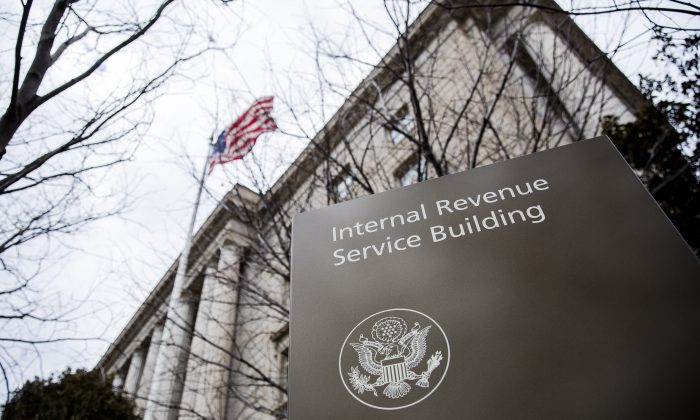The IRS will process tax returns beginning in late January and provide refunds as scheduled despite the partial government shutdown.
The IRS is one of the agencies that has not received renewed funding as President Donald Trump and lawmakers engage in a standoff over funding for the border wall.
The agency is able to issue refunds through a permanent, indefinite appropriation that gives it authority to pay them despite the lapse in funding.
Although in 2011 the Office of Management and Budget (OMB) directed the IRS not to pay refunds during a lapse, OMB has reviewed the relevant law at Treasury’s request and concluded that IRS may pay tax refunds during a lapse, the IRS said in a press release.
“We are committed to ensuring that taxpayers receive their refunds notwithstanding the government shutdown. I appreciate the hard work of the employees and their commitment to the taxpayers during this period,” said IRS Commissioner Chuck Rettig in a statement. “IRS employees have been hard at work over the past year to implement the biggest tax law changes the nation has seen in more than 30 years.”
The filing deadline is April 15 for most taxpayers but some people begin their returns in January, which will be prepared then submitted beginning on Jan. 28.
According to the agency, the average refund in 2018 was $2,899.
The White House confirmed that tax refunds will start going out soon.
“Tax refunds will go out,” acting White House budget director Russ Vought told reporters on Monday.
In a statement, House Ways and Means Chairman Richard Neal (D-Mass.) responded: “I look forward to seeing a more detailed description of how the agency will carry out these operations, particularly what will be expected of Treasury and IRS personnel.”

Tax Cuts
The tax season will include an estimated $3.2 trillion in tax cuts for American families and businesses, per a bill that President Trump signed in late December 2017.
The bill reduced the individual tax rates while keeping the existing seven tax brackets, The Epoch Times reported at the time. The rates are set at 10 percent, 12 percent, 22 percent, 24 percent, 32 percent, 35 percent, and 37 percent.
The plan narrowed itemized deductions to simplify the tax code. However, it nearly doubled the standard deduction for individuals from $6,350 to $12,000 and for married couples filing jointly from $12,700 to $24,000.
According to Republican leaders, the provision will simplify tax filing and enable nine out of 10 people to fill their taxes on a form so simple it could fit on a postcard.
The bill expanded the child tax credit from $1,000 to $2,000 for both individuals and married couples filing jointly. The tax credit will be fully refundable up to $1,400, which means the credit can be used to increase or create a tax refund.
The child tax credit will now start to phase out for families with income over $400,000. Under the current law, it phases out at $110,000 in income for married couples.
Many individual income tax provisions, including the child tax credit, will expire by the end of 2025, and the old rules will take effect unless the provisions are extended.
The plan also narrowed the deduction for state and local taxes (SALT) by capping it at $10,000. It allowed taxpayers the option to choose among sales, income, and property taxes. Those who benefit most from the SALT deductions are taxpayers in high-tax states like New York, New Jersey, and California.
In addition, the bill allowed the deduction of mortgage interest for newly purchased homes (first or second home) up to $750,000, which is below the current $1 million cap. It also repealed Obamacare’s individual mandate provision, which requires most Americans to have a basic level of health insurance coverage or else pay a tax penalty.
Epoch Times reporter Emel Akan contributed to this report.


